第三篇商城系统-基础业务-实现类别管理
Posted 波波烤鸭
tags:
篇首语:本文由小常识网(cha138.com)小编为大家整理,主要介绍了第三篇商城系统-基础业务-实现类别管理相关的知识,希望对你有一定的参考价值。

商城系统-基础业务-分类管理
在上一篇的基础上继续介绍。
启动renren-fast如果出现如下错误
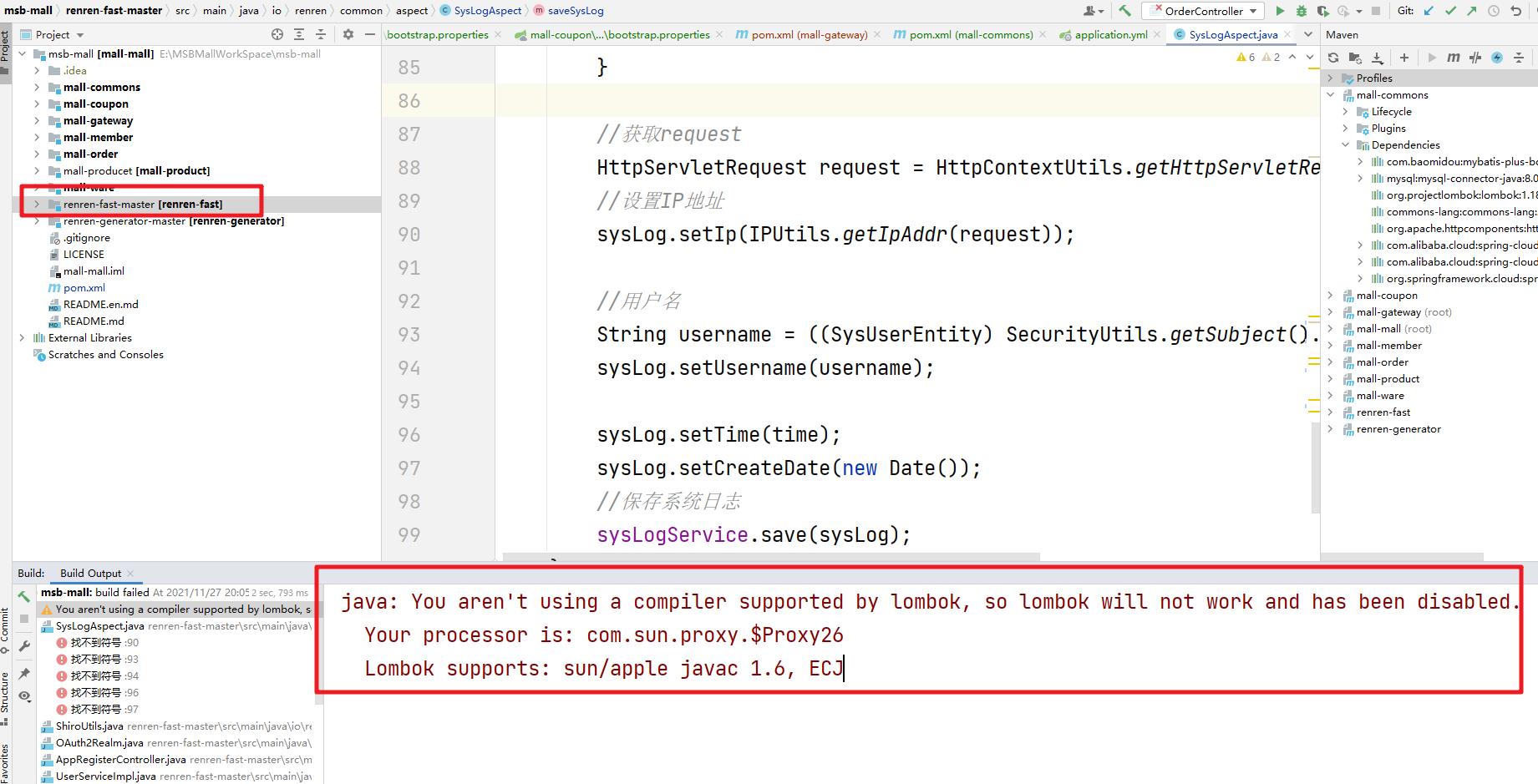
-Djps.track.ap.dependencies=false
添加相关配置即可
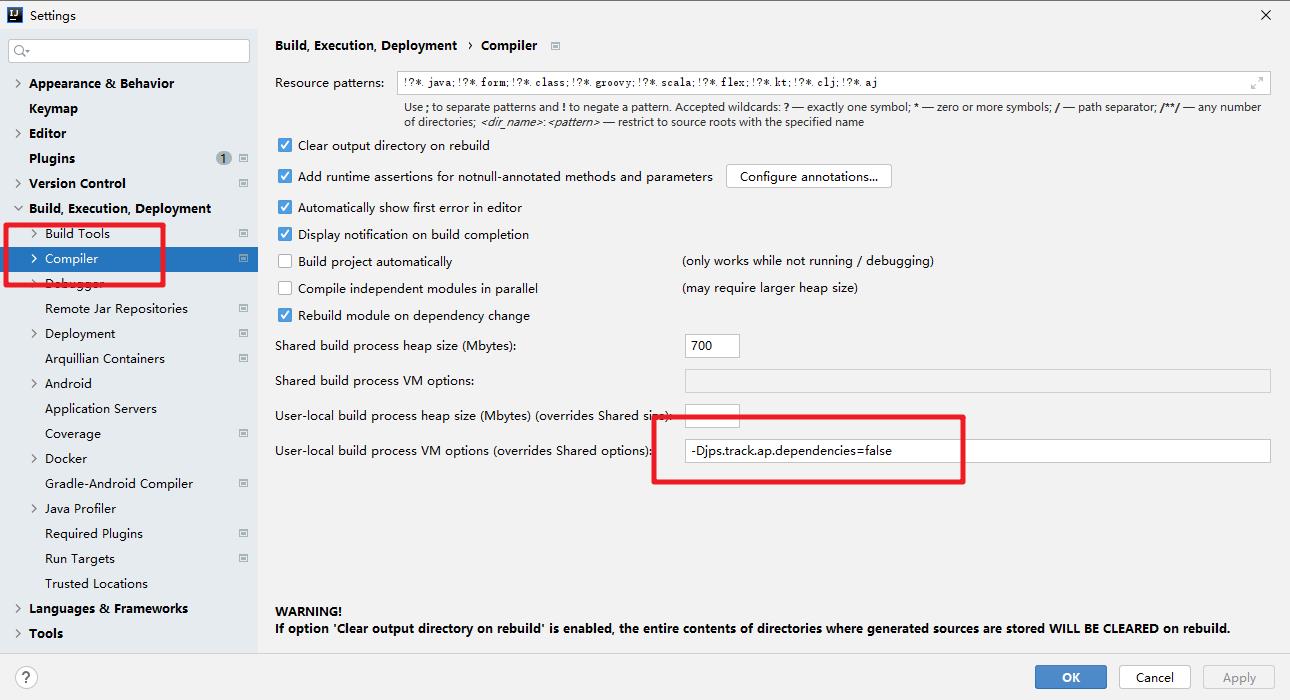
分类管理
1.后端分类接口
JDK8特性:https://blog.csdn.net/qq_38526573/category_11113126.html
在后端服务中我们需要查询出所有的三级分类信息,并将这些信息组合为有父子关系的数据,所以首先我们需要在对应的entity中添加关联字段 childrens
/**
* 当前类别所拥有的所有的子类
*/
@TableField(exist = false)
private List<CategoryEntity> childrens;
然后我们在service中完成对应的数据处理的逻辑,具体实现逻辑参考注释
/**
* 查询所有的类别数据,然后将数据封装为树形结构,便于前端使用
*
* @param params
* @return
*/
@Override
public List<CategoryEntity> queryPageWithTree(Map<String, Object> params)
// 1.查询所有的商品分类信息
List<CategoryEntity> categoryEntities = baseMapper.selectList(null);
// 2.将商品分类信息拆解为树形结构【父子关系】
// 第一步遍历出所有的大类 parent_cid = 0
List<CategoryEntity> list = categoryEntities.stream().filter(categoryEntity -> categoryEntity.getParentCid() == 0)
.map(categoryEntity ->
// 根据大类找到多有的小类 递归的方式实现
categoryEntity.setChildrens(getCategoryChildrens(categoryEntity,categoryEntities));
return categoryEntity;
).sorted((entity1, entity2) ->
return (entity1.getSort() == null ? 0 : entity1.getSort()) - (entity2.getSort() == null ? 0 : entity2.getSort());
).collect(Collectors.toList());
// 第二步根据大类找到对应的所有的小类
return list;
/**
* 查找该大类下的所有的小类 递归查找
* @param categoryEntity 某个大类
* @param categoryEntities 所有的类别数据
* @return
*/
private List<CategoryEntity> getCategoryChildrens(CategoryEntity categoryEntity
, List<CategoryEntity> categoryEntities)
List<CategoryEntity> collect = categoryEntities.stream().filter(entity ->
// 根据大类找到他的直属的小类
return entity.getParentCid() == categoryEntity.getCatId();
).map(entity ->
// 根据这个小类递归找到对应的小小类
entity.setChildrens(getCategoryChildrens(entity, categoryEntities));
return entity;
).sorted((entity1, entity2) ->
return (entity1.getSort() == null ? 0 : entity1.getSort()) - (entity2.getSort() == null ? 0 : entity2.getSort());
).collect(Collectors.toList());
return collect;
CategoryService中同步定义对应的接口方法
public interface CategoryService extends IService<CategoryEntity>
PageUtils queryPage(Map<String, Object> params);
List<CategoryEntity> queryPageWithTree(Map<String, Object> params);
然后在CategoryController中新增对应处理的方法
@GetMapping("/listTree")
public R listTree(@RequestParam Map<String, Object> params)
List<CategoryEntity> list = categoryService.queryPageWithTree(params);
return R.ok().put("data", list);
启动服务访问测试
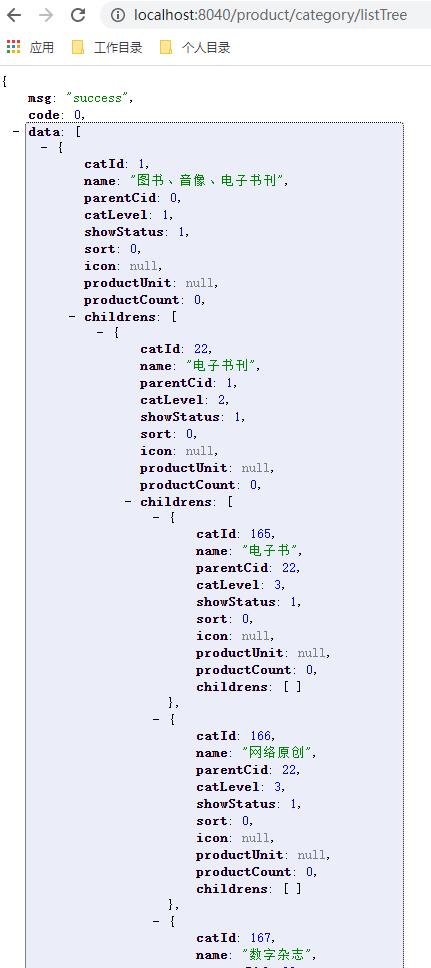
2. 前端服务串联
2.1 新增菜单
首先我们新增一个 商品系统的目录
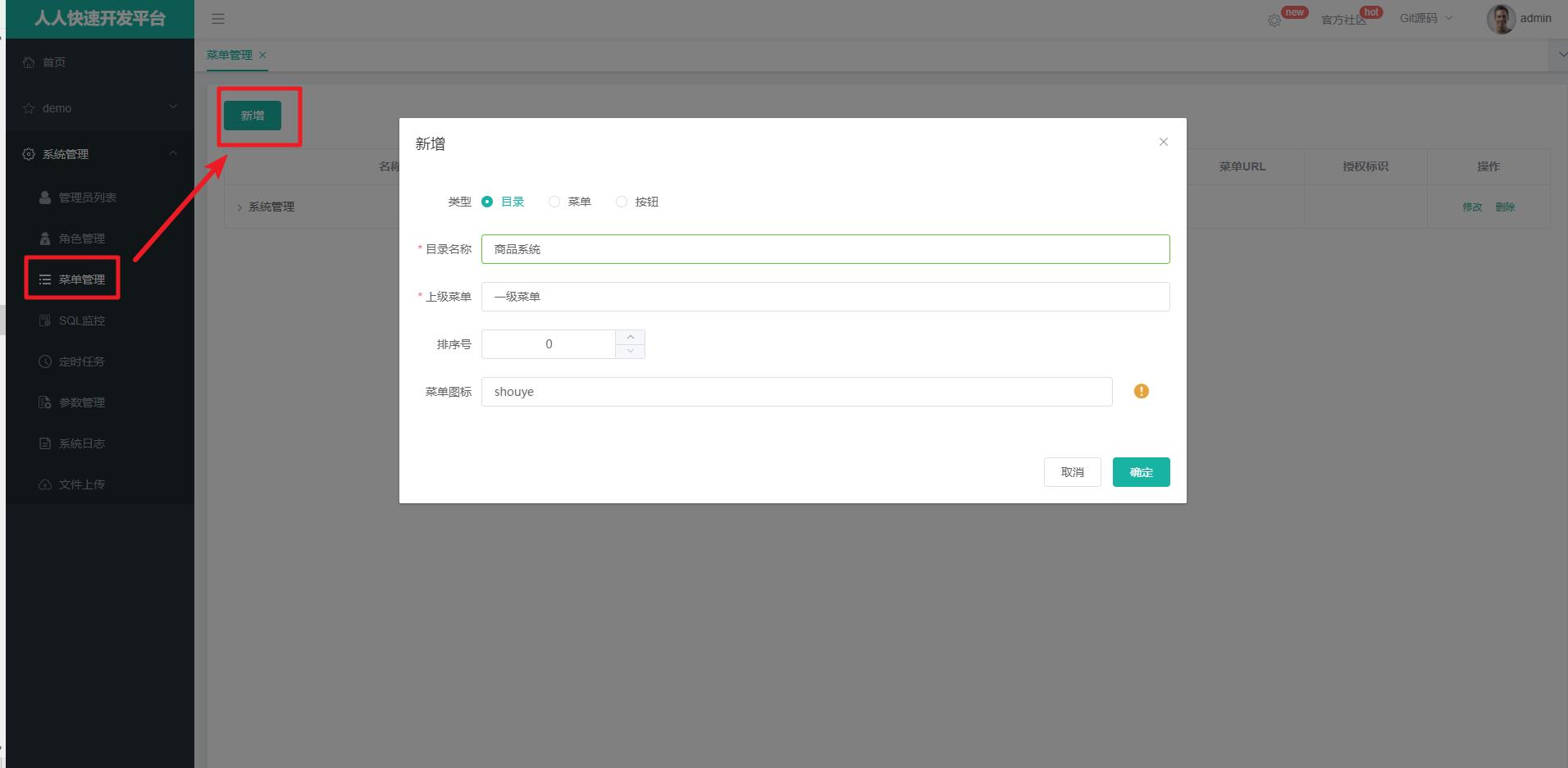
按照上图的操作完成即可
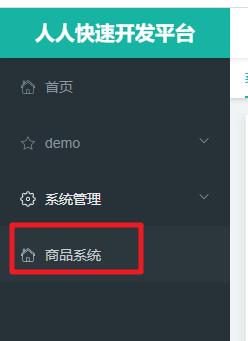
然后在商品系统下添加 类别管理的菜单
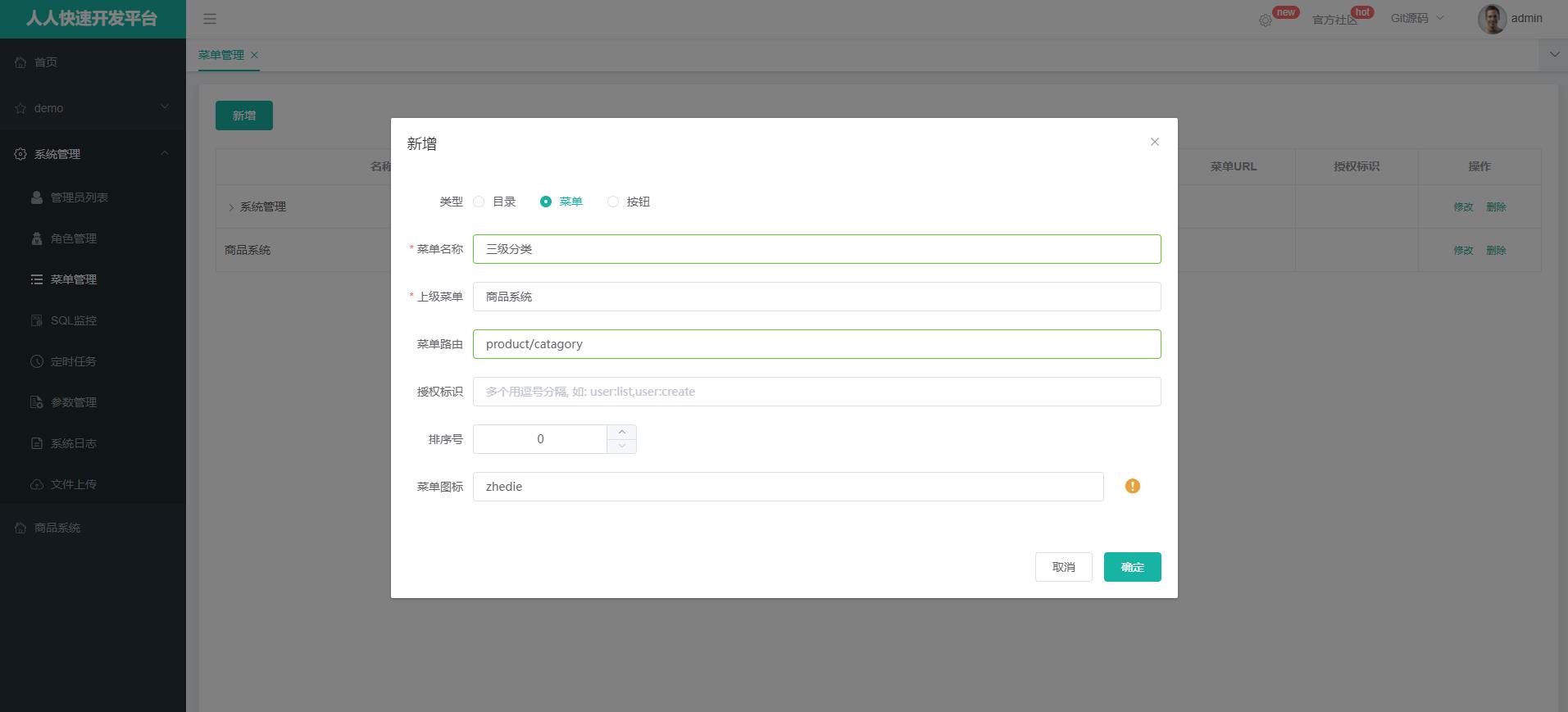
对应的三级分类的页面 product/catagory–> src/views/modules/product/category.vue
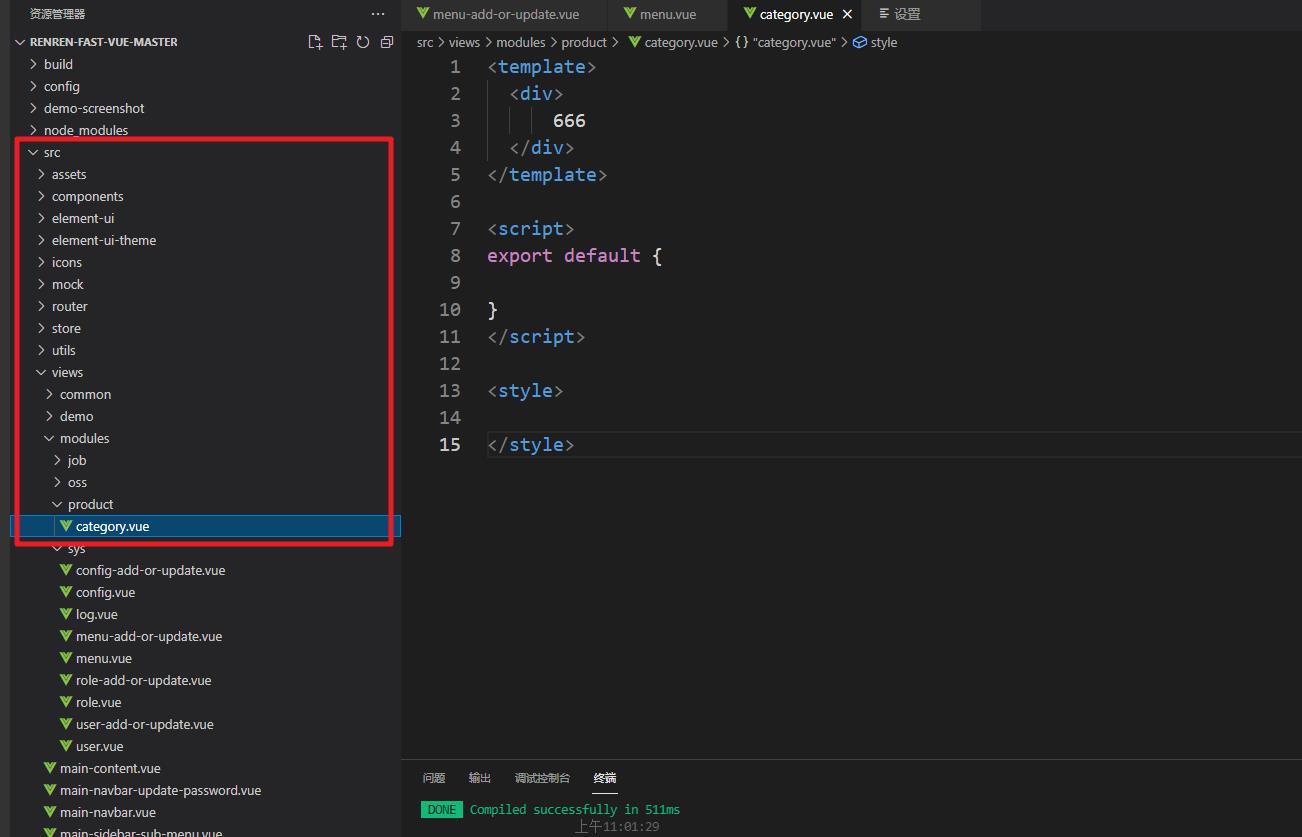
2.2 类别数据
ElementUI官网:https://element.eleme.cn/#/zh-CN
第一步:展示静态的数据,直接从ElementUI官网拷贝Tree相关案例代码
<template>
<div>
<el-tree :data="data" :props="defaultProps" @node-click="handleNodeClick"></el-tree>
</div>
</template>
<script>
/* eslint-disable */
export default
data()
return
data: [
label: '一级 1',
children: [
label: '二级 1-1',
children: [
label: '三级 1-1-1'
]
]
,
label: '一级 2',
children: [
label: '二级 2-1',
children: [
label: '三级 2-1-1'
]
,
label: '二级 2-2',
children: [
label: '三级 2-2-1'
]
]
,
label: '一级 3',
children: [
label: '二级 3-1',
children: [
label: '三级 3-1-1'
]
,
label: '二级 3-2',
children: [
label: '三级 3-2-1'
]
]
],
defaultProps:
children: 'children',
label: 'label'
;
,
methods:
handleNodeClick(data)
console.log(data);
;
</script>
<style>
</style>
页面效果
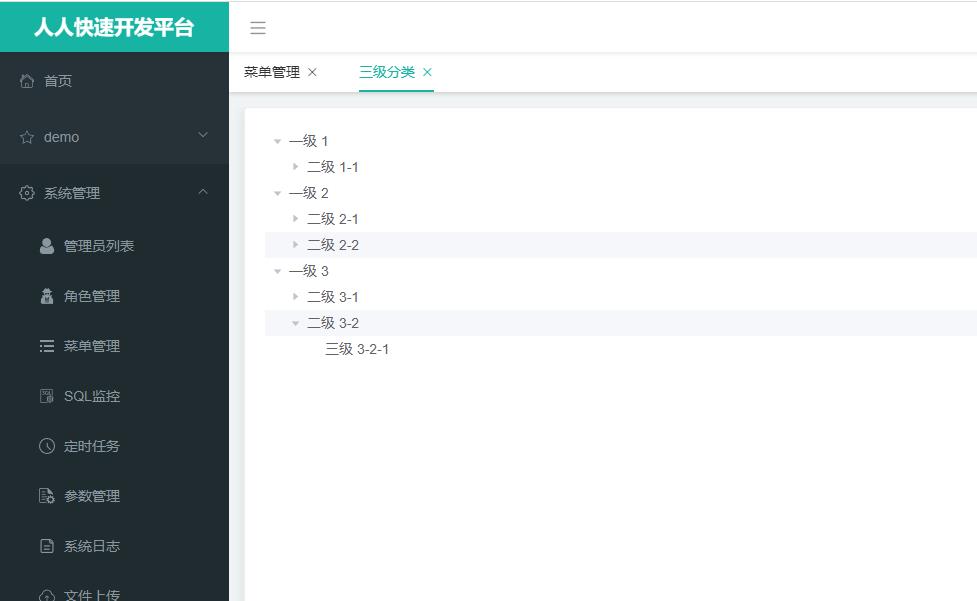
第二步:动态获取后台服务的数据
<template>
<div>
<el-tree :data="data" :props="defaultProps" @node-click="handleNodeClick"></el-tree>
</div>
</template>
<script>
/* eslint-disable */
export default
data()
return
data: [],
defaultProps:
children: 'children',
label: 'label'
;
,
methods:
getCategory()
this.$http(
url: this.$http.adornUrl('/product/category/listTree'),
method: 'get'
).then((data) =>
console.log("成功获取的类别数据:",data.data)
this.data = data.data
)
,
handleNodeClick(data)
console.log(data);
,created()
this.getCategory();
;
</script>
<style>
</style>
访问三级分类数据并没有得到我们期望的结果。出现了404错误:http://localhost:8080/renren-fast/product/category/listTree
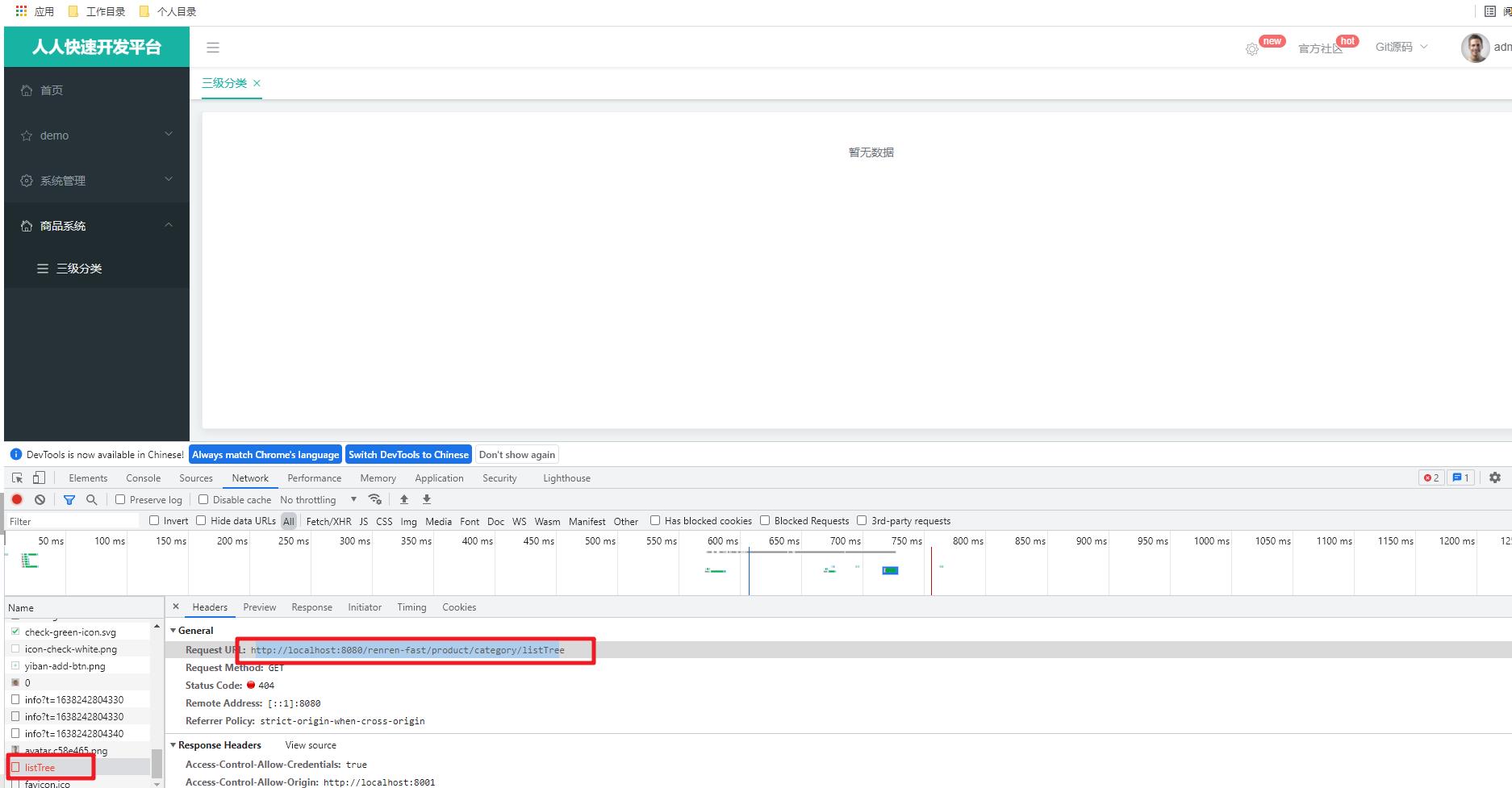
针对这个错误提示我们需要通过网关服务来实现统一的路由处理
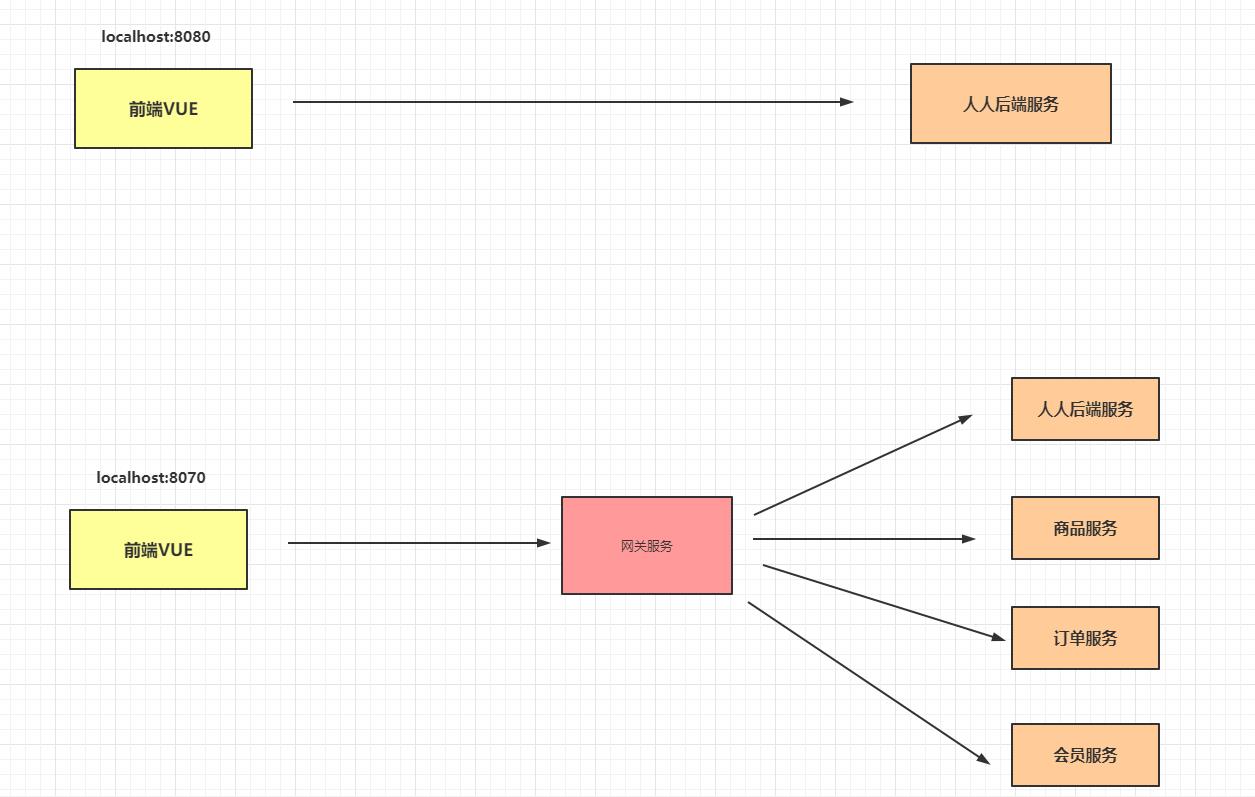
修改了前端统一的后端服务地址为路由服务后
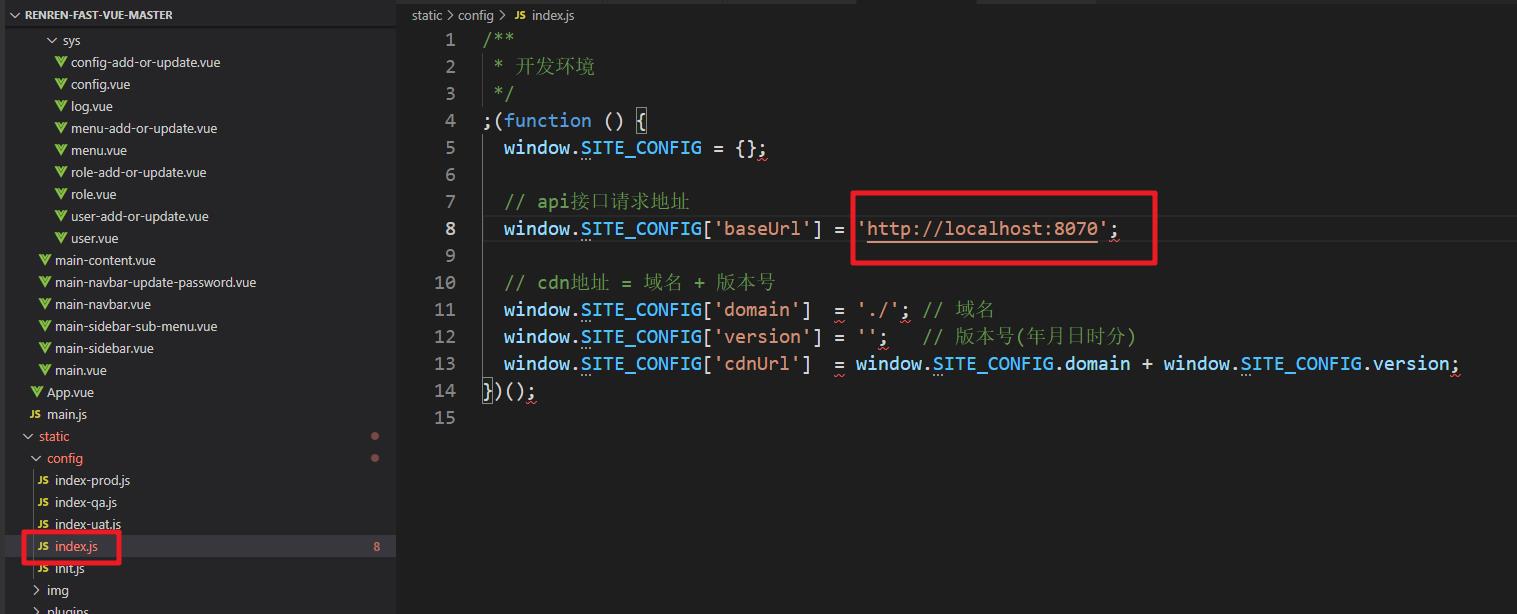
访问后这个验证码出不来了
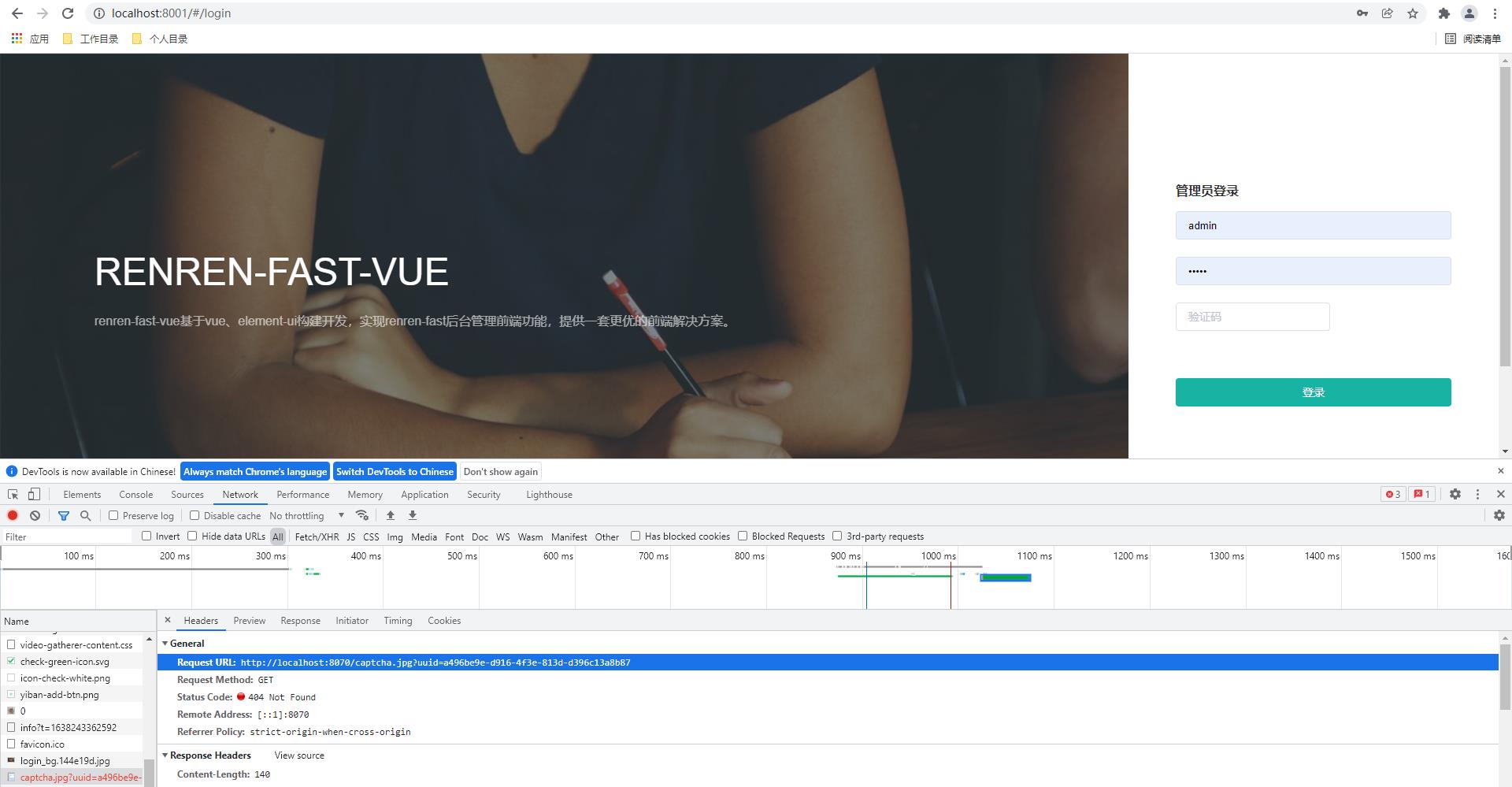
验证码出不来的原因是请求的地址:http://localhost:8070/captcha.jpg?uuid=a496be9e-d916-4f3e-813d-d396c13a8b87 跑到网关服务获取验证码了,这里网关服务就应该要将这个请求路由到renren-fast服务中。
首先renren-fast服务没有在注册中心中注册,网关发现不了,先注册renren-fast服务
在renren-fast中依赖commons
<dependency>
<groupId>com.msb.mall</groupId>
<artifactId>mall-commons</artifactId>
<version>0.0.1-SNAPSHOT</version>
</dependency>
添加注册中心和配置中心相关的信息
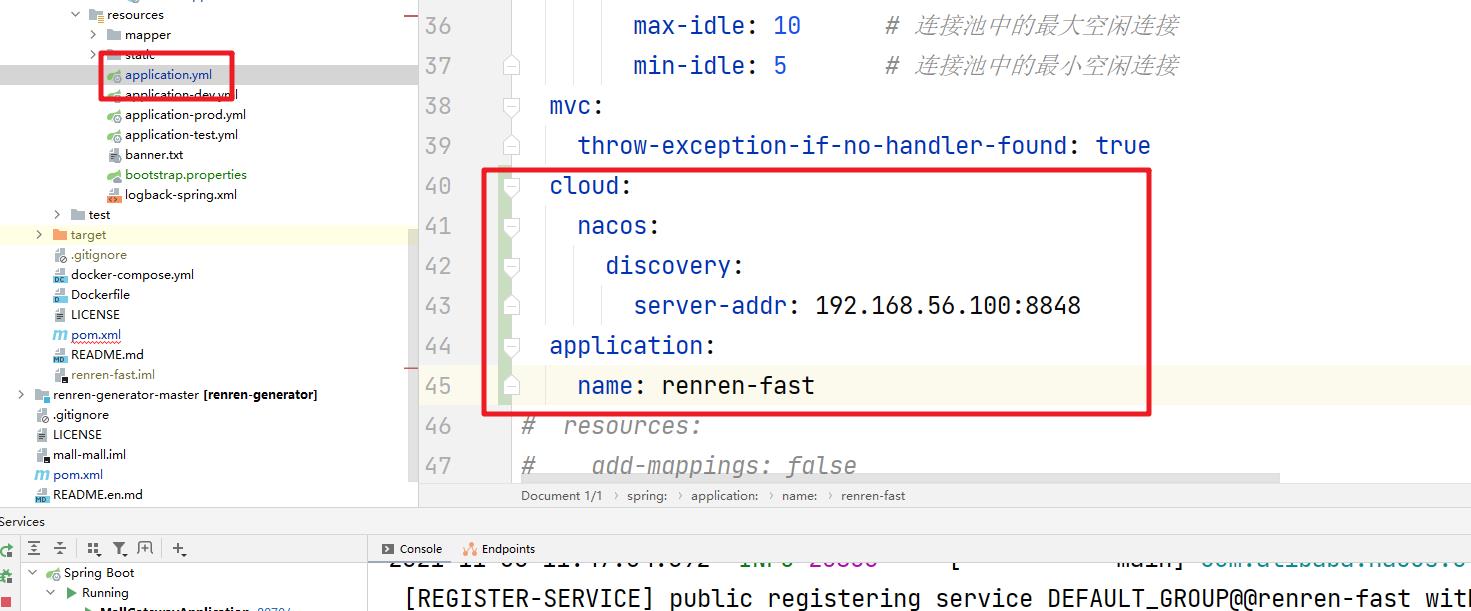

然后放开注册中心
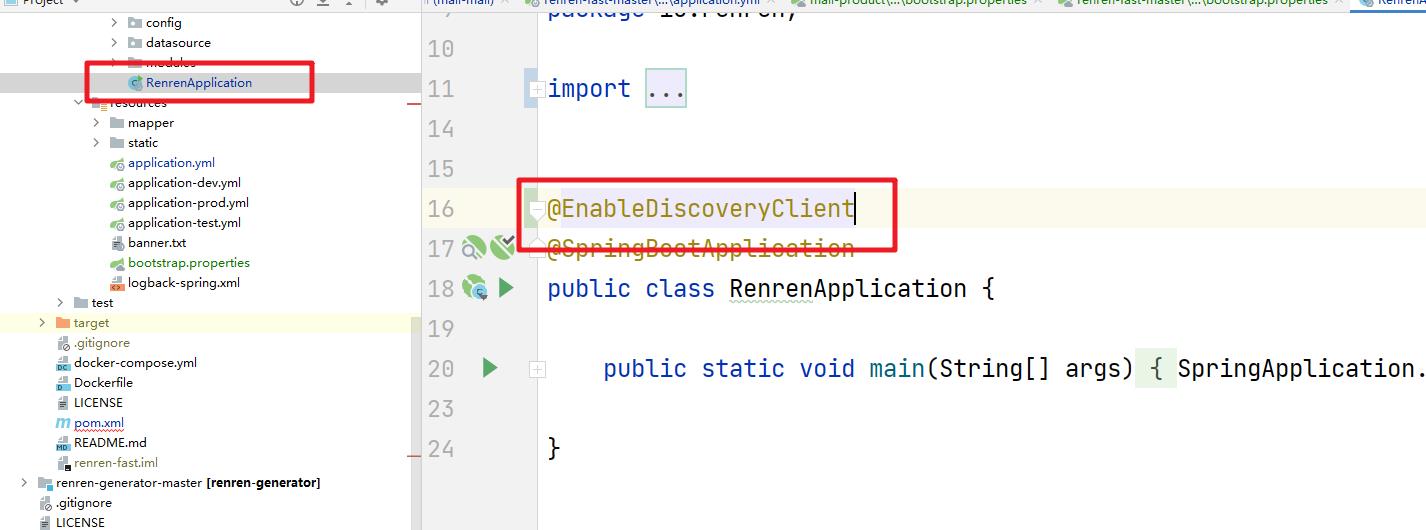
最后启动服务提示如下错误
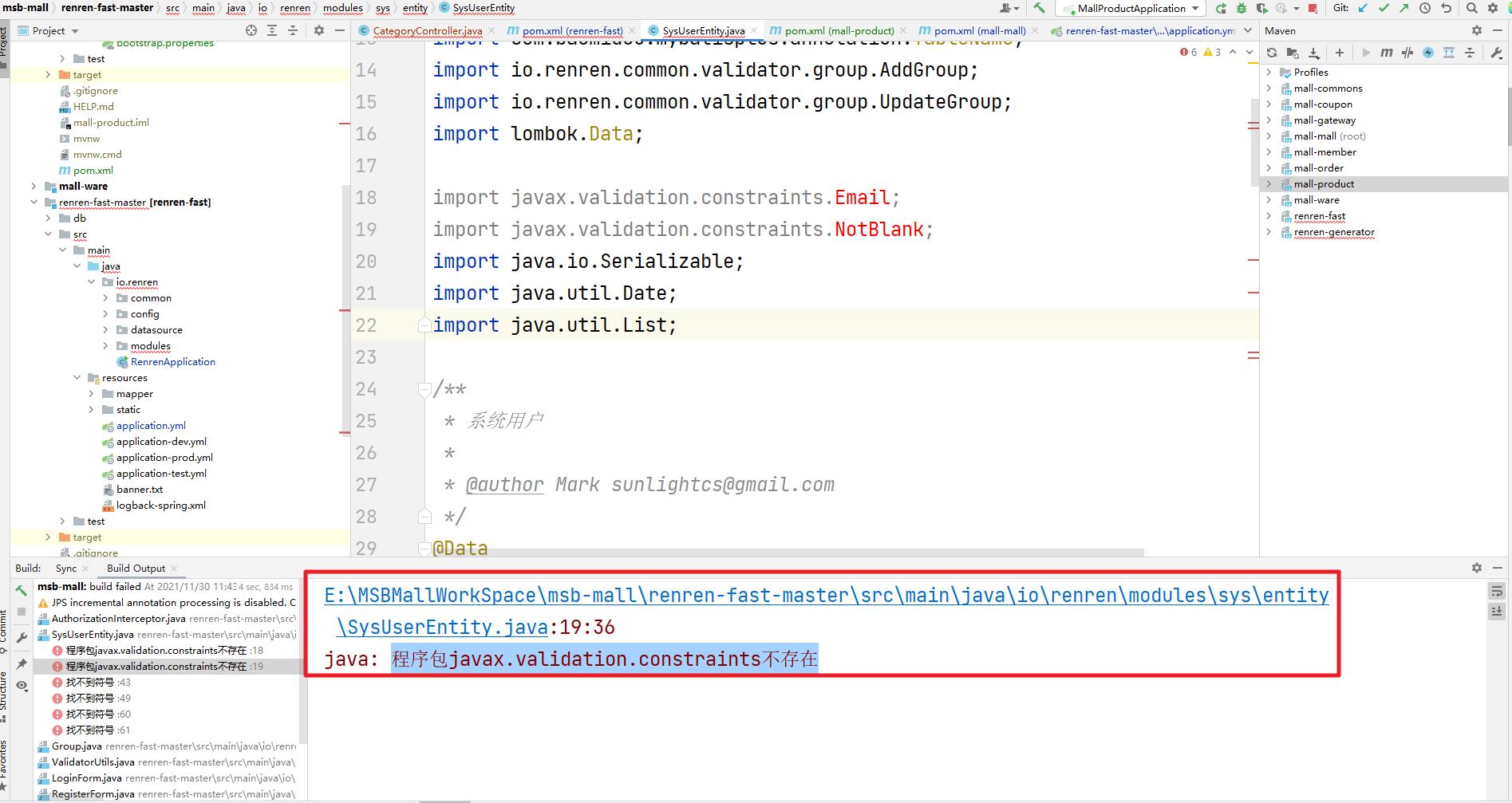
原因是因为SpringBoot我们把版本升级到了2.4.12那么validation默认被移除了,我们需要收到的添加依赖
<dependency>
<groupId>org.springframework.boot</groupId>
<artifactId>spring-boot-starter-validation</artifactId>
<version>2.4.12</version>
</dependency>
启动服务,注册成功
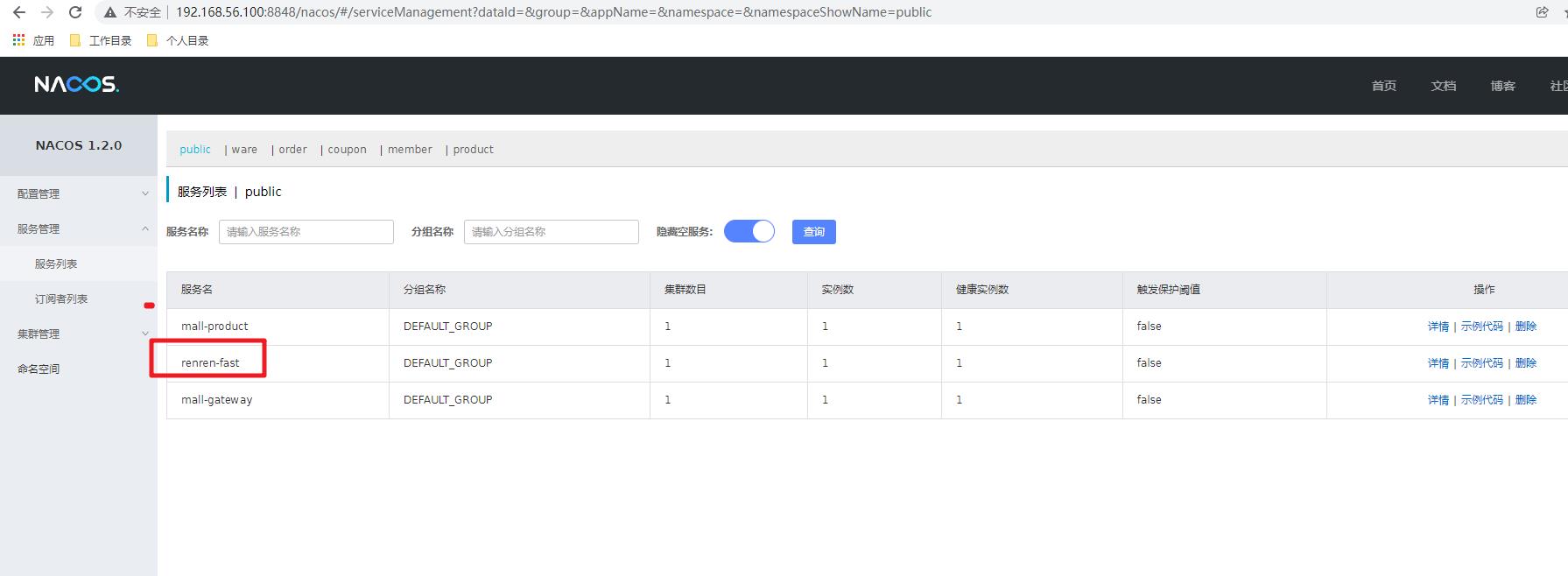
解决验证码图片不显示的问题,我们需要在网关服务中添加对renren-fast服务访问的路由
# 注册中心的信息
spring:
application:
name: mall-gateway
cloud:
nacos:
discovery:
server-addr: 192.168.56.100:8848
gateway:
routes:
- id: route1
uri: http://www.baidu.com
predicates:
- Query=url,baidu
- id: route2
uri: http://www.jd.com
predicates:
- Query=url,jd
- id: app_route
uri: lb://renren-fast
predicates:
- Path=/app/**
filters:
- RewritePath=/app/(?<segment>/?.*), /renren-fast/$\\segment
# localhost:8070/app/captcha.jpg -->
# localhost:8080/app/captcha.jpg localhost:8080/renren-fast/captcha.jpg
# 指定注册中心的服务端口
server:
port: 8070
然后测试访问验证码出现了503的错误
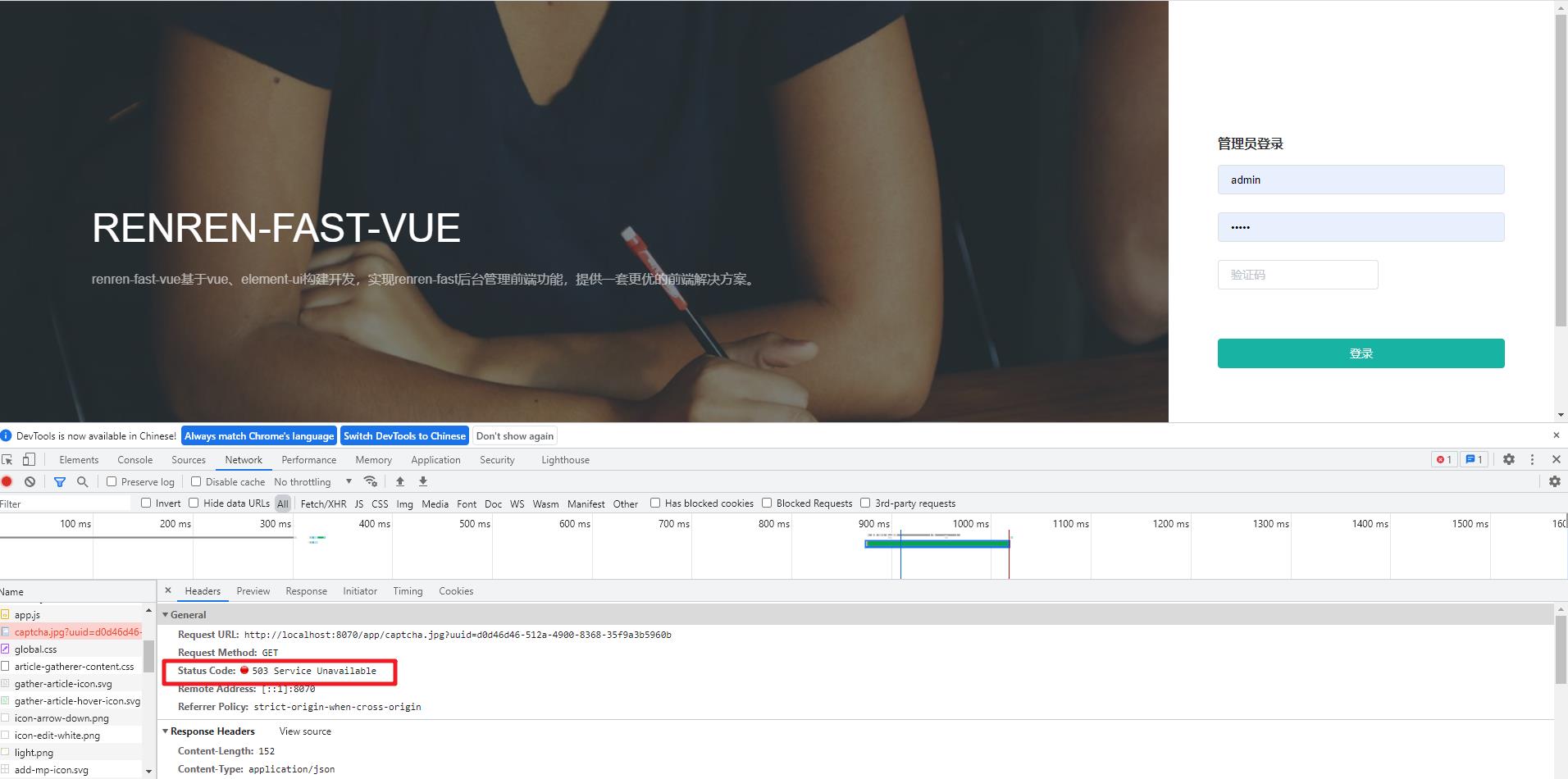
出现503错误的原因是Gateway网关服务中会根据loadbanlance负载均衡路由到renren-fast但是缺少了对应的依赖,在Gateway服务中添加即可
<dependency>
<groupId>org.springframework.cloud</groupId>
<artifactId>spring-cloud-starter-loadbalancer</artifactId>
</dependency>
2.3 跨域问题
同源策略
由于浏览器的同源策略,即属于不同域的页面之间不能相互访问各自的页面内容
注:同源策略,单说来就是同协议,同域名,同端口
URL 说明 是否允许通信
http://www.a.com/a.js
http://www.a.com/b.js 同一域名下 允许
http://www.a.com/lab/a.js
http://www.a.com/script/b.js 同一域名下不同文件夹 允许
http://www.a.com:8000/a.js
http://www.a.com/b.js 同一域名,不同端口 不允许
http://www.a.com/a.js
https://www.a.com/b.js 同一域名,不同协议 不允许
http://www.a.com/a.js
http://70.32.92.74/b.js 域名和域名对应ip 不允许
http://www.a.com/a.js
http://script.a.com/b.js 主域相同,子域不同 不允许
http://www.a.com/a.js
http://a.com/b.js 同一域名,不同二级域名(同上) 不允许(cookie这种情况下也不允许访问)
http://www.cnblogs.com/a.js
http://www.a.com/b.js 不同域名 不允许
跨域网站介绍:https://developer.mozilla.org/zh-CN/docs/Web/HTTP/CORS
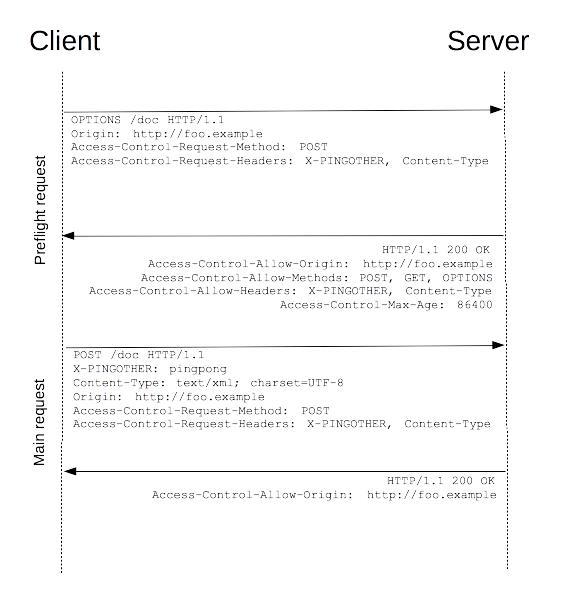
对于跨域问题的解决我们统一在Gateway中设定。注意删除掉在renren-fast中配置的跨域问题
package com.msb.mall.gateway.config;
import org.springframework.context.annotation.Bean;
import org.springframework.context.annotation.Configuration;
import org.springframework.web.cors.CorsConfiguration;
import org.springframework.web.cors.reactive.CorsConfigurationSource;
import org.springframework.web.cors.reactive.CorsWebFilter;
import org.springframework.web.cors.reactive.UrlBasedCorsConfigurationSource;
@Configuration
public class MallCorsConfiguration
@Bean
public CorsWebFilter corsWebFilter()
UrlBasedCorsConfigurationSource source = new UrlBasedCorsConfigurationSource();
CorsConfiguration configuration = new CorsConfiguration();
// 配置跨域的信息
configuration.addAllowedHeader("*");
configuration.addAllowedMethod("*");
// SpringBoot升级到2.4.0 之后需要使用该配置
configuration.addAllowedOriginPattern("*");
configuration.setAllowCredentials(true);
source.registerCorsConfiguration("/**",configuration);
return new CorsWebFilter(source);
然后登录操作即可
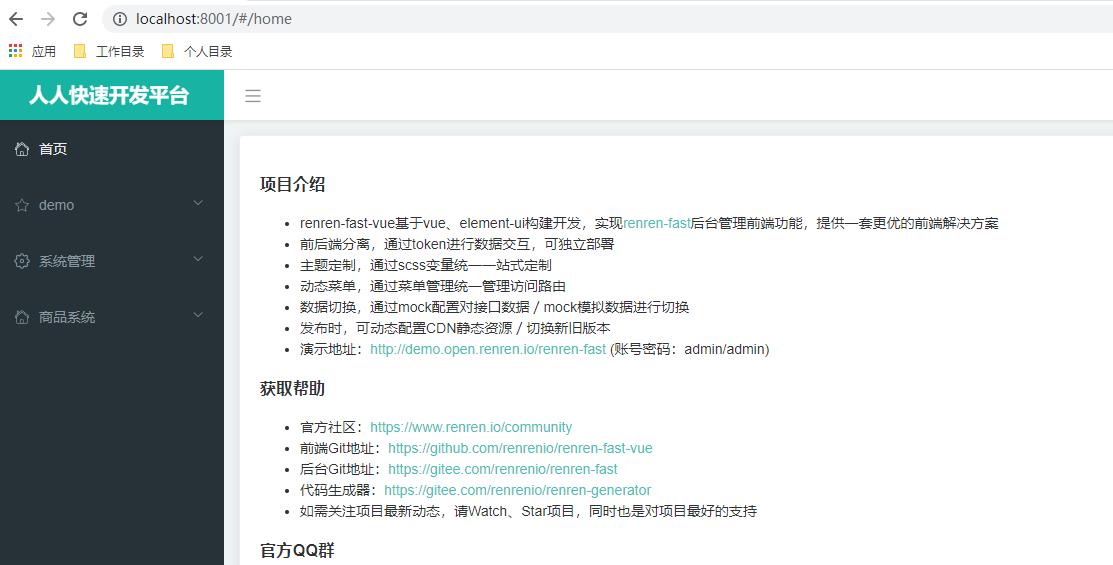
2.4 查看类别数据
首先需要在Gateway中配置商品服务的路由信息,同时要注意配置规则的先后顺序
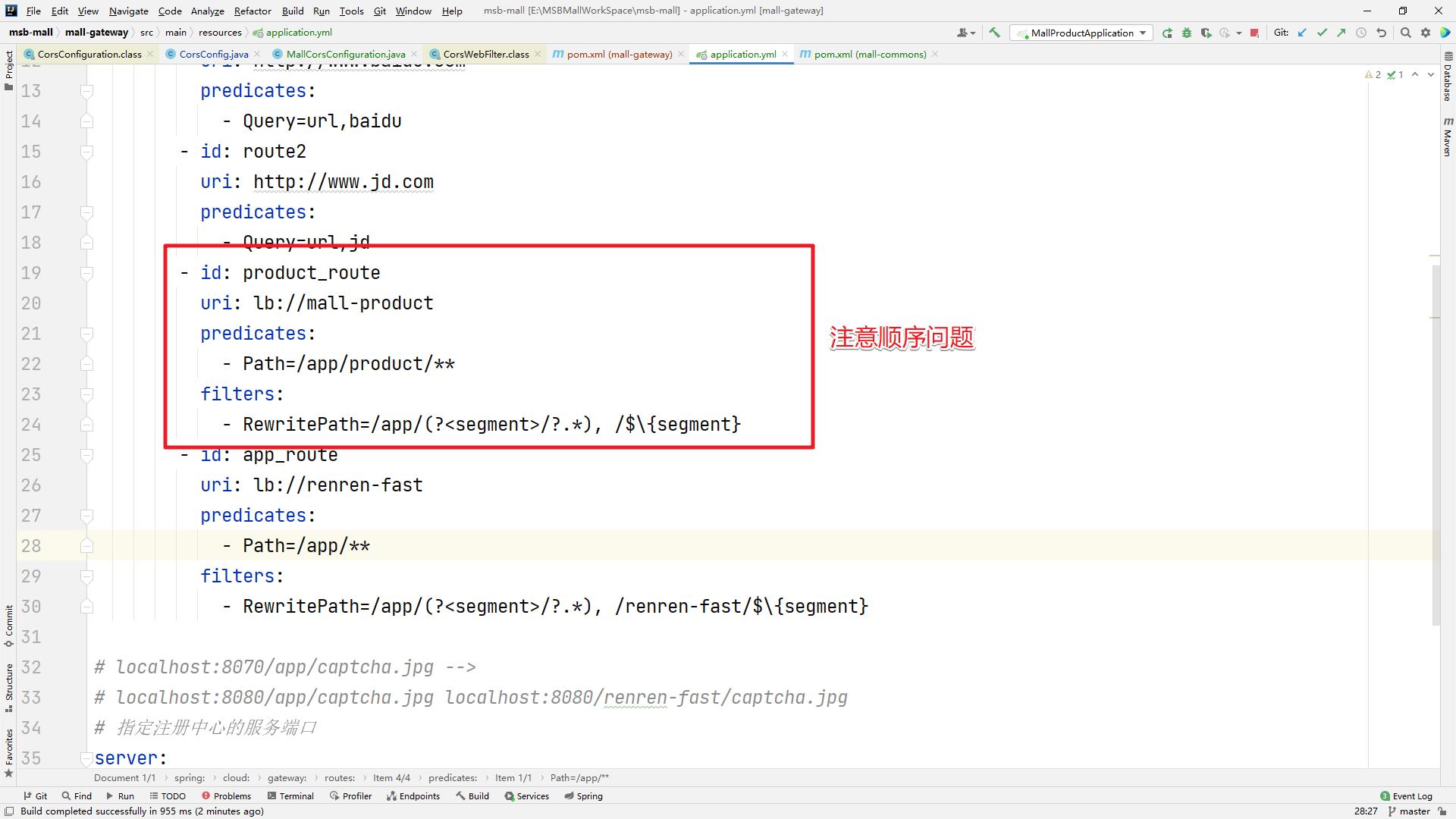
然后服务端响应的数据的字段要在Vue文件中显示的对应,才能正确的显示
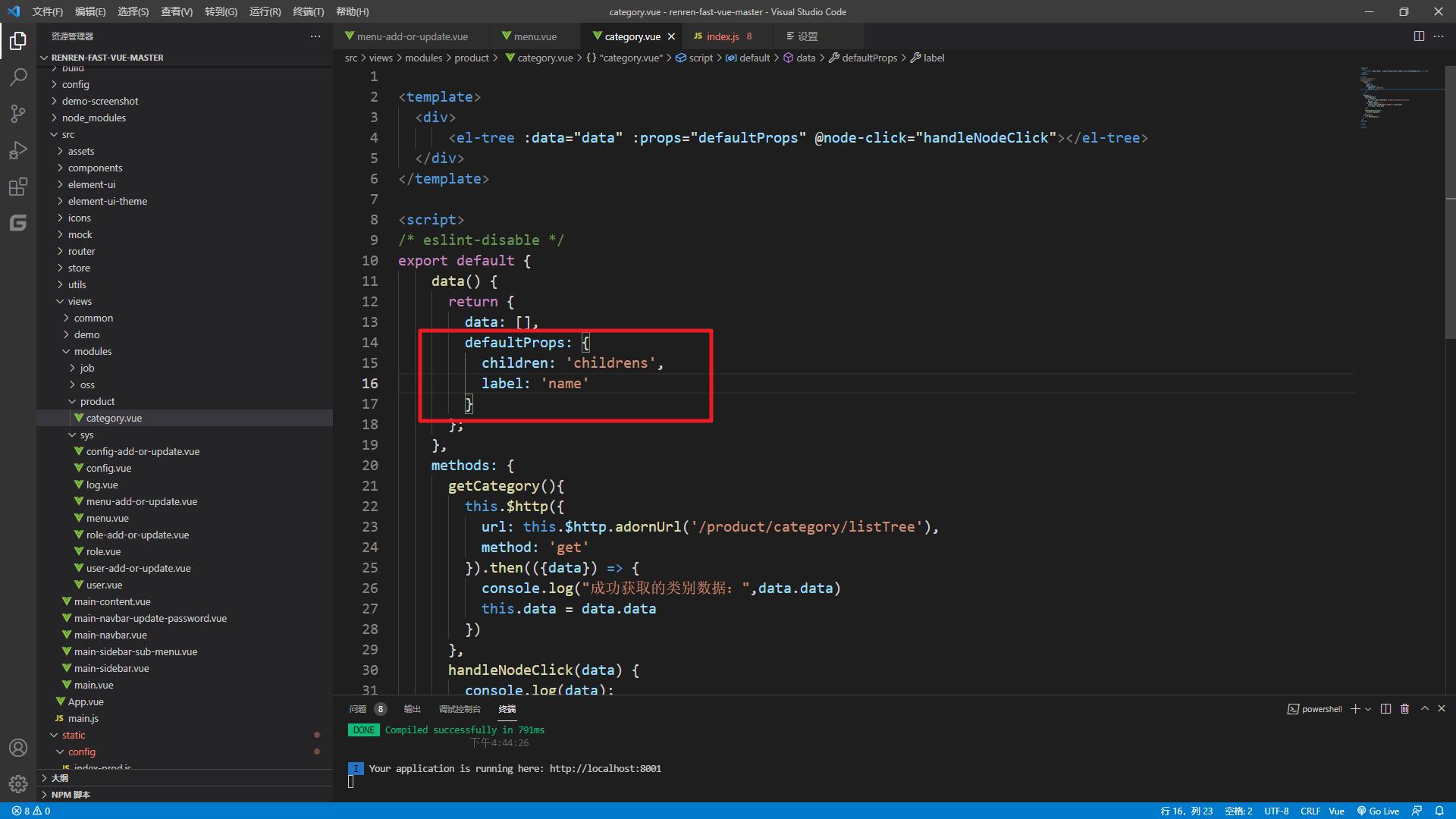
访问测试
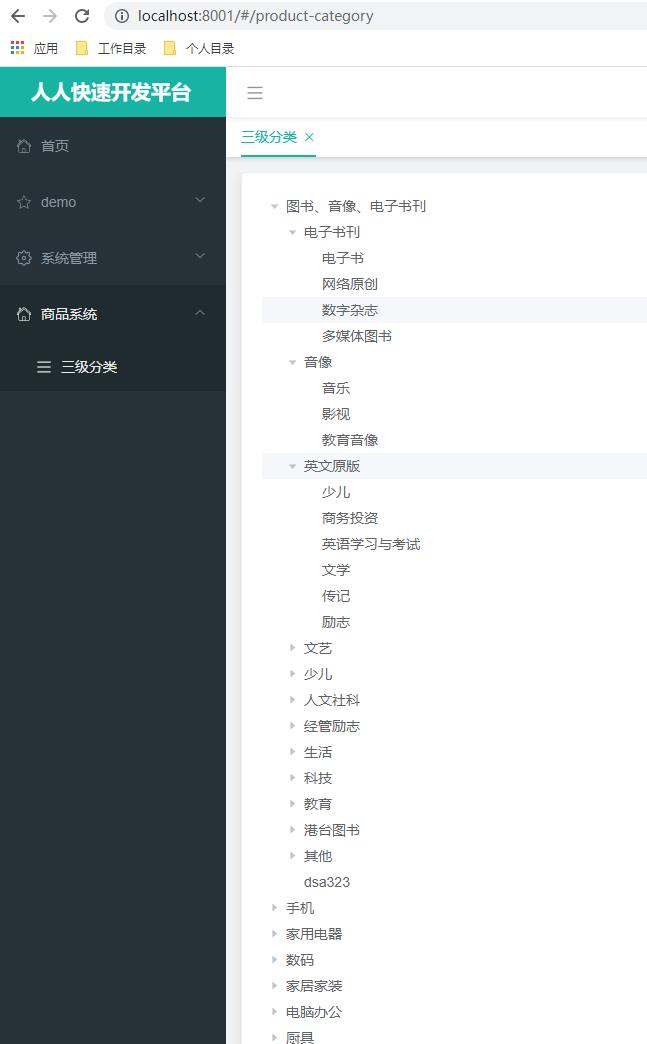
3 删除类别
1> 先完成类型页面的基础处理
添加相关的 添加 , 删除按钮和复选框按钮以及相关的代码逻辑
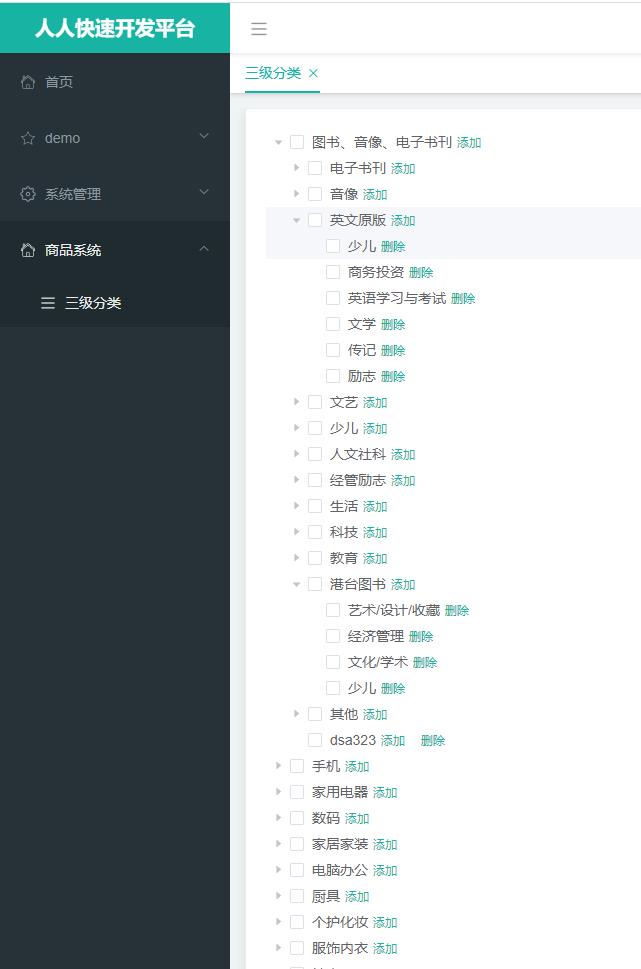
对应的Vue代码
<template>
<div>
<el-tree :data="data" :props="defaultProps"
:expand-on-click-node="false"
show-checkbox
node-key="catId"
>
<span class="custom-tree-node" slot-scope=" node, data ">
<span> node.label </span>
<span>
<el-button v-if="data.catLevel <= 2" type="text" size="mini" @click="() => append(data)">
添加
</el-button>
<el-button v-if="data.childrens.length == 0" type="text" size="mini" @click="() => remove(node, data)">
删除
</el-button>
</span>
</span>
</el-tree>
</div>
</template>
<script>
/* eslint-disable */
export default
data()
return
data: [],
defaultProps:
children: "childrens",
label: "name",
,
;
,
methods:
getCategory()
this.$http(
url: this.$http.adornUrl("/product/category/listTree"),
method: "get",
).then(( data ) =>
console.log("成功获取的类别数据:", data.data);
this.data = data